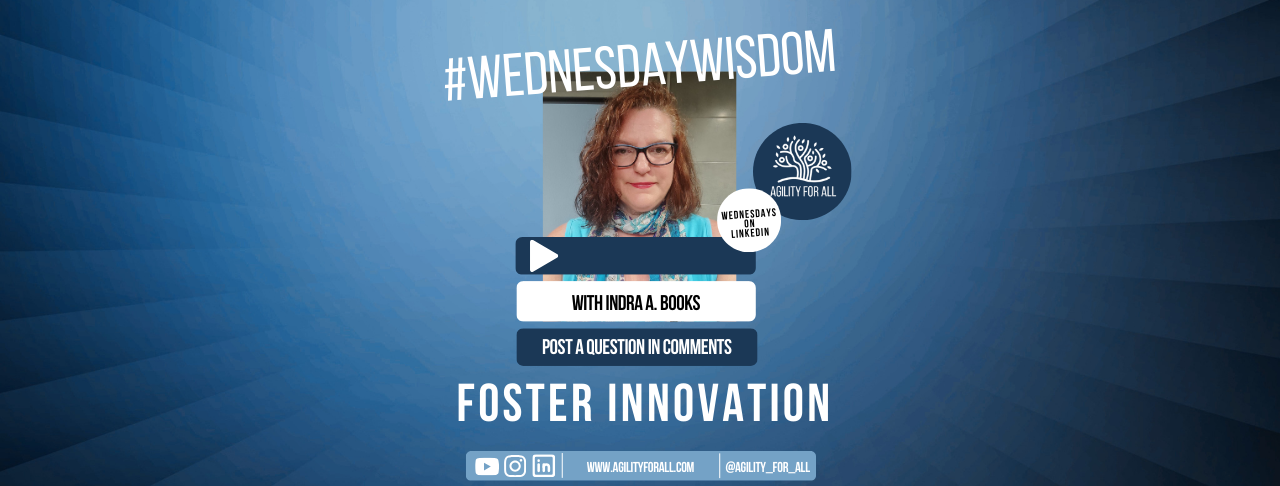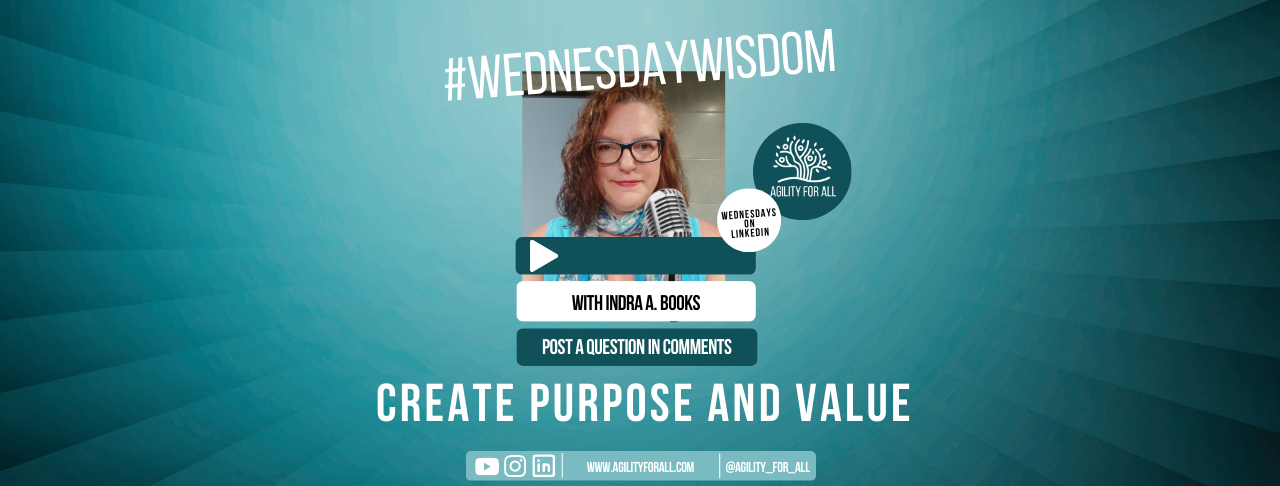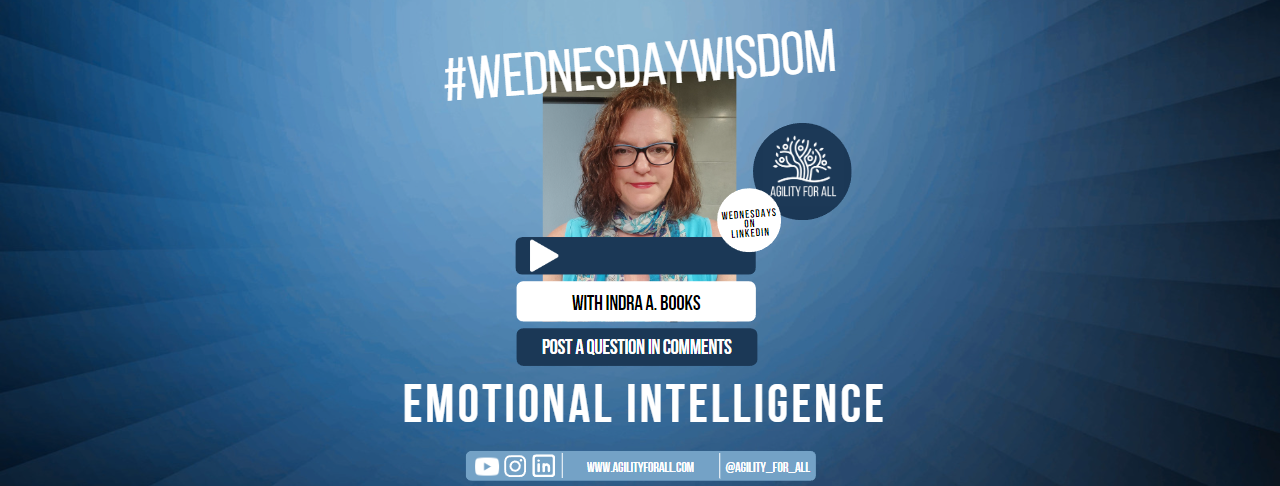
Wednesday Wisdom - Provide Continuous Learning Opportunities
Tip number three is provide continuous learning opportunities. In the digital age, the pace of technological advancements is unprecedented, reshaping industries and job roles at an astonishing rate. Look at the controversy over AI, as an example. To thrive in this tech enabled future organizations must invest in their most valuable asset - their employees. Continuous learning opportunities have become essential for successful businesses, ensuring that their workforce remains adaptive, skilled, and future-ready.

Wednesday Wisdom - Foster Innovation
Tip number two of this series is foster innovation. In the ever-evolving business landscape, fostering innovation is not just a choice. It's a strategic imperative. Embracing a culture of innovation is the key to staying ahead of technological advancements and market changes. It's about creating an environment for employees at all levels to think creatively experiment fearlessly, because even failures are learning opportunity, and challenge the status quo.

Wednesday Wisdom - Create Purpose and Value
Our first tip of the series is create purpose and value. An organization's purpose isn't merely a tagline or a bunch of buzzwords, it's a profound understanding of why the organization exists and the positive change that aims to bring. This purpose serves as a force drawing in the employees who resonate with it and are inspired to contribute their best.

Enhancing PMO Efficiency: Implementing the IOM Framework
Organizations face the constant challenge of managing numerous projects and products efficiently. Establishing a robust Program Management Office (PMO) process is vital to streamline operations, enhance project delivery, and maximize business value. This article outlines the implementation of the IOM (Intake, Onboarding, Management) Framework, an Agility for All structured approach designed to optimize project management within the organization.

Wednesday Wisdom: Avoiding Procrastination
Here is a reminder that you are kidding yourself when you assume that you can stall something today, because there's always tomorrow. There might be a certain sense of satisfaction or of cheating the status quo when you are in the moment procrastinating but in the end, you are not in control of the influences and you may not get a chance to finish tomorrow what you did or didn't start today.

Wednesday Wisdom: Top 10 Leadership Skills Part 2
In today's rapidly changing and complex world, leaders need to possess a wide range of skills to navigate challenges and inspire their teams. In this two part Wednesday Wisdom, we are going to walk through what we think are the top 10 skills that leaders need today in no particular order.

Wednesday Wisdom: Top 10 Leadership Skills Part 1
In today's rapidly changing and complex world, leaders need to possess a wide range of skills to navigate challenges and inspire their teams. In this two part Wednesday Wisdom, we are going to walk through what we think are the top 10 skills that leaders need today in no particular order.

Wednesday Wisdom: Followership vs Leadership
Whether you consider yourself a leader or not, you must also follow someone or something. It's part of what forms your internal compass, which ensures that you are able to act in a way that is right and consistent with both who you are and who you want to become.

Wednesday Wisdom: Emotional Intelligence
In recent years, the role of emotional intelligence and leadership has gained significant attention. As individuals strive to become more effective leaders, there is a growing interest in developing their emotional intelligence skills. This topic delves into the importance of self-awareness, empathy, and relationship management in leading and motivating teams.

54 Things I've Learned in My Career
Indra A. Books, Founder of Agility for All, shares with us on her 54th birthday the 54 things she has learned in her career. The format of this was inspired by a series of posts done by Tamsen Fadal for her birthday. And while it may not have perfect videography, we hope it gives you inspiration to keep learning and growing no matter what you choose to do.
Search

WELCOME TO THE AFA LEARNING PORTAL
We offer loads of free information here in the blog and also in our
resource library
AFA provides coaching, consulting, and training programs. In addition to specialized consulting, you have the option to choose from:
- group coaching programs
- masterclasses
- 1-week intensive offsites
Our programs are designed to help your organization to:
- Maximize Employee Engagement
- Foster Self-Organization
- Encourage Innovation
- Attain Higher Performance
- Be More Agile
